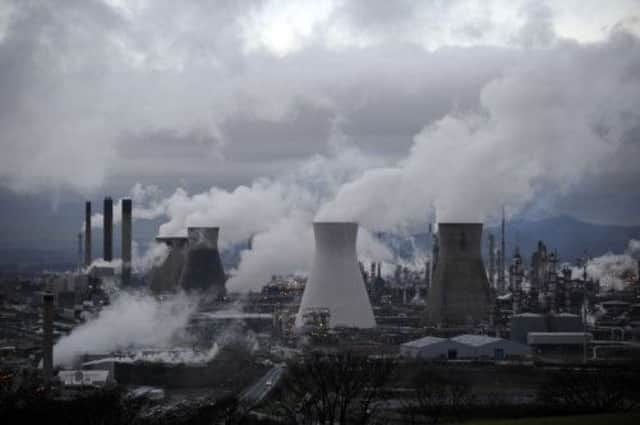Leaders: We must get heated about global warming


But the latest report from the International Panel on Climate Change (IPCC), which works under the auspices of the United Nations, says that everybody needs to broaden and lengthen their horizons.
They are not wrong. There are still those who believe either that the world is not getting warmer or that if it is, it is due to natural factors such as solar activity cycles. That stance flies in the face of the vast majority of scientists. This report states that those who have studied the phenomenon are now 95 per cent certain that global warming is happening and that man’s activities are responsible.
Advertisement
Hide AdAdvertisement
Hide AdIt has to be said that it does not help matters that the picture painted by the IPCC is apocalyptic. It says that climate change threatens to raise sea-levels rather faster than previously thought, portending that many coastal cities – from the rich like New York to the poor like Mumbai – may, within a few decades, become uninhabitable. It raises concerns about supplies of fresh water, essential not just for drinking but also for the growth of food. Less land, less fresh water, but more people – it is a dread prospect.
Among the anti-climate change theories rebutted by the report is that the last 15 years, which have seen global temperatures remain relatively stable, is evidence that warming is not happening. The scientists say, quite reasonably, that in global historical terms of a habitable planet being around for several million years, a decade and a half is the blink of an eye.
They also point out that each of the past three decades has been warmer than the previous one and that the earth is now warmer than it has been in the last 1,400 years. And, they say grimly, even just halting the amount of greenhouse gas people put into the atmosphere won’t halt the change; a sustained reduction for years to come is required.
Will people heed the warning? Well, this week saw the Labour leader, Ed Miliband, bidding to be prime minister by promising to cap energy bill price rises, ignoring the fact that part of those increases are due to the cost of converting energy production to more expensive low-carbon means.
An effect of such a policy may be to cut investment in renewables. But just as all are now paying for the costs of past financial profligacy, so all must also face up to paying for the costs of carbon overindulgence.
Even if not totally convinced by the scientific evidence, surely the prudent course of action for us all to take is to act to counter global warming because it is just too big a gamble. Living on our planet in a sustainable way is the only path that makes any sense.
The steps each individual takes may be small, but without them, the price paid by grandchildren may be much, much worse.
Royal Mail sale might fail to deliver
UK government ministers appear to have decided to sell Royal Mail early and get perhaps a £3.3 billion pre-Christmas present to boost their efforts to cut Britain’s public spending deficit. It might sound like a good plan in the Treasury, but this rush to share sales may not have the desired effect and end up costing taxpayers.
Advertisement
Hide AdAdvertisement
Hide AdIt seems pretty clear that the fast pace, which could well see the sale done and dusted by 15 October is designed to beat the Communications Workers Union ballot of its 100,000 postal worker members on industrial action aimed at stopping the sale. The result is not due to be declared until 16 October.
It may be that ministers reckon the intention to allocate about 10 per cent of the shares to the workers, perhaps worth about an average £3,000 to each of them, will sway opinion against action. In these hard times, it is a pretty substantial sum. And if this strategy works, it would go a long way to breaking the union’s power, which would increase the attractions of the business.
If so, it is a quite a high-risk bet. It could well antagonise the workers, provoking them into drastic action which, quite apart from disrupting postal services, will inevitably weaken the business and make it a lot less attractive to investors. That means the government will have to lower the price to keep potential buyers on board, so reducing the return taxpayers get.
The big problem is that what way the vote will go is unknowable before the sale is due to happen. That creates uncertainty, which is also unattractive to investors. And this was a step the government did not need to rush in to. This timetable looks like creating one big mess.